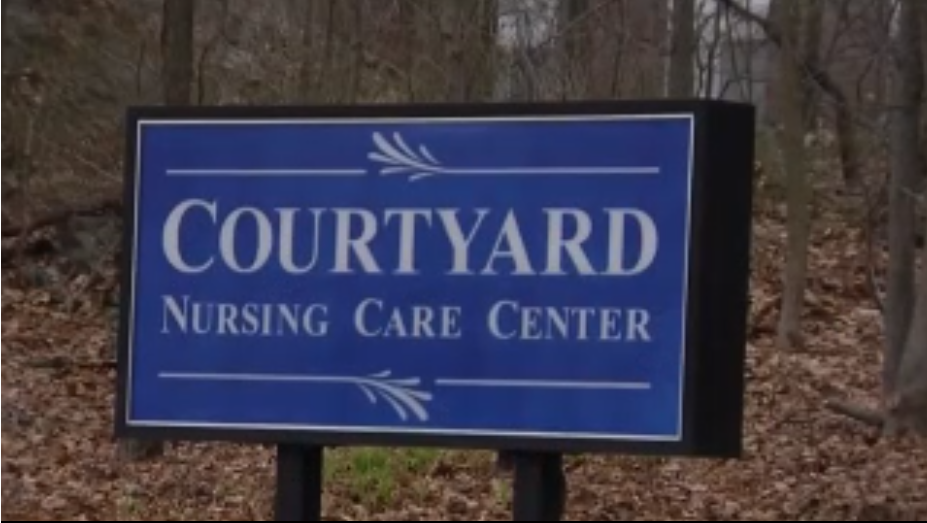After recovering from the flu, 92-year-old Robert Stout was discharged from Pleasant Bay Nursing & Rehabilitation Center in Brewster on April 10.
On the day he left, family members say Pleasant Bay didn’t give them any notice that others in the facility were showing symptoms of the novel coronavirus.
But that same day, Pleasant Bay received assistance from the state’s mobile testing program to begin screening patients.
Several people in the nursing center had developed symptoms, and over the next 10 days, 60 of the 92 residents at Pleasant Bay would test positive for COVID-19, according to town officials in Brewster. To date, at least 11 have died.
And while the outbreak at Pleasant Bay is now well documented, Leslie Stout-Tabachman said Pleasant Bay didn’t test her father, Richard, for the virus before he was released, or inform his family of their plan to screen patients.
“It just seems unbelievable to us that they wouldn’t have just said we have people showing symptoms, we’re testing people,” she told the NBC10 Boston Investigators this week. “We may have had my dad tested before he left. We may have taken other precautions.”
Richard Stout later tested positive for COVID-19 at Cape Cod Hospital. He succumbed to the disease, and his 88-year-old wife – who had cared for him in their Dennis home – got COVID-19, too.
Stout-Tabachman said the episode was a “nightmare within a nightmare within a nightmare.”
“It’s been terrible,” she said.
Nursing homes across Massachusetts are reeling from outbreaks of COVID-19, which has now infected more than 15,000 residents and staff members in long-term care facilities in the state.
Public health experts say many share common problems, such as vulnerable populations and lack of sophistication around infection control.
But stopping the spread of coronavirus isn’t the only challenge. Some families in Massachusetts say they’ve also been kept in the dark, leaving them scared and worried for loved ones.
Get Boston local news, weather forecasts, lifestyle and entertainment stories to your inbox. Sign up for NBC Boston’s newsletters.
“If they had given us information that there were people who were symptomatic, enough that they said, ‘Yes, we’re going to start doing testing,’ … at least we would’ve had information to make decisions,” Stout-Tabachman said.
In a statement released to NBC10, Pleasant Bay’s administrator said residents who are discharged go home with instructions recommending they self-quarantine as a precaution. He didn’t say whether Pleasant Bay notified families testing was underway.
The administrator noted that Pleasant Bay has a five-star quality rating from the federal government, and said it has followed all CDC and state guidance.
“We extend our condolences to the families who have lost a loved one from COVID-19,” the statement reads. “We are grieving too, while we continue to serve our residents to ensure that they stay safe.”
Cathy Steinhauser’s dad, Carroll, was one of the residents who tested positive at Pleasant Bay on April 10. She says staff put him in isolation, leaving him confused.
“He was scared,” Steinhauser told NBC10. “He was scared because people were not responding to him.”
Steinhauser said she didn’t learn of the circumstances until the following day. She contacted the facility after her dad telephoned her because he was hungry and didn’t know why there wasn’t any response from staff, she said.
“I called the administrator and said, ‘What is going on?’” Steinhauser recalled. “He said, ‘Well, if you want to file a complaint, go ahead.’ That was it.”
Her father, a World War II veteran, died two weeks later.
Citing patient privacy, a spokesperson for Pleasant Bay told us the facility would not comment on specific cases.
Neither family blames Pleasant Bay for the outbreak, but they say it should have been more transparent. They’re calling for the state to investigate how it handled communication with families.
“He didn’t deserve this,” Steinhauser said.
The federal government is putting more pressure on nursing homes to keep families in the loop.
Under new guidelines issued last month, they must now inform residents and their representatives within 12 hours of a confirmed COVID-19 infection. They can also be penalized if they fail to tell residents about a cluster of people who develop new respiratory symptoms within a period of 72 hours.
State lawmakers are also considering legislation that would make information more readily available.
Currently, the state releases data each day on the aggregate number of confirmed cases and deaths at long-term care facilities in Massachusetts. It also releases some information about cases within each facility, but withholds the individual case count, noting only whether a nursing home has fewer than 10 cases, between 10 and 30, or more than 30.
A bill pending on Beacon Hill would require all assisted living residences, elderly housing facilities and long-term care facilities to report the number of known COVID-19 cases and deaths among residents and staff to the state and local health department where the facility is located each day.
The figures would be posted online, and the state would be required to update the data daily.
The measure is currently pending in the Senate Ways and Means Committee.



